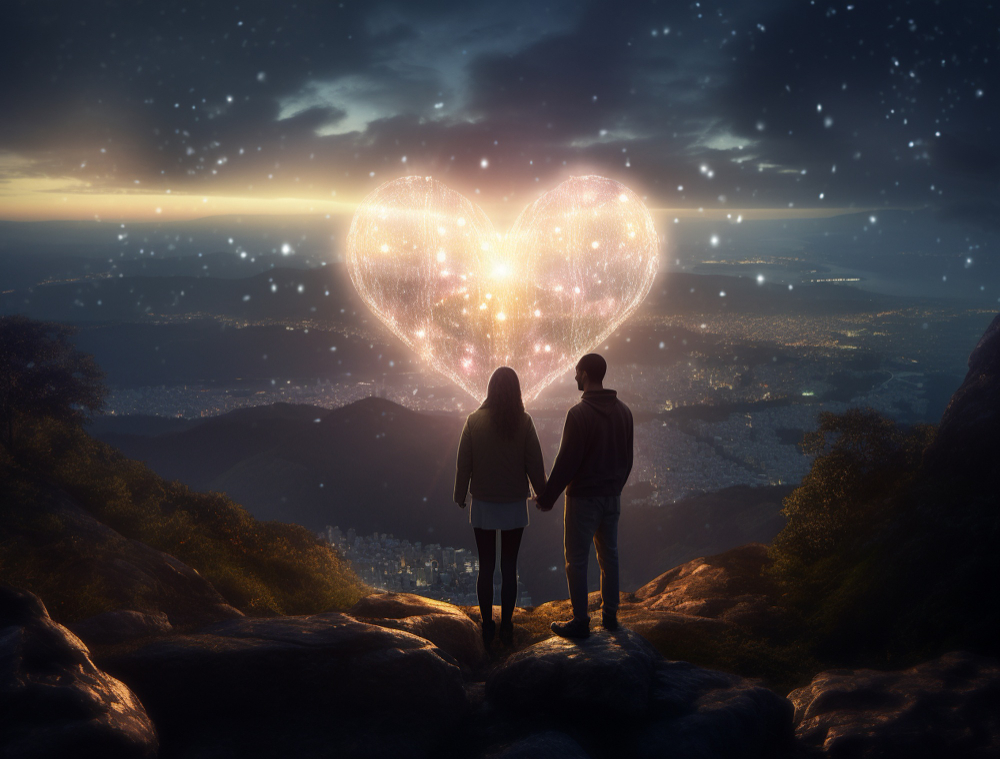
Vedic astrology offers deep insights into various aspects of life, including relationships, by analyzing the influence of Nakshatras, or lunar constellations. These 27 Nakshatras hold immense significance, shaping our personalities, emotional responses, and life paths. But beyond personal characteristics, Nakshatras also play a crucial role in determining compatibility between individuals. By understanding how these celestial markers interact, we can gain valuable insights into the harmony or challenges that may arise in relationships, particularly in marriage.
The Three Categories of Nakshatras and Their Influence
Each Nakshatra carries a distinct energy, and based on their inherent nature, they are classified into three broad categories: Deva (divine), Manushya (human), and Rakshasa (demonic). This classification provides a foundational framework for assessing compatibility between two individuals.
Nakshatras that fall under the Deva category represent qualities of purity, kindness, and spiritual alignment. People born under these Nakshatras, which include Ashwini, Mrigashira, Punarvasu, Pushya, Hasta, Swati, Anuradha, and Revati, tend to be gentle, optimistic, and deeply connected to higher ideals. They often seek peace and harmony in their relationships and are naturally inclined toward emotional and spiritual growth. When two individuals from this category come together, their relationship is typically harmonious, marked by mutual respect and shared values. However, when a Deva Nakshatra native pairs with someone from the more intense and transformative Rakshasa category, differences in temperament can create challenges. The gentle nature of a Deva-born person may struggle to understand the depth and intensity of a Rakshasa-born individual, but with patience and understanding, this pairing can lead to profound personal growth. On the other hand, Deva Nakshatra individuals often blend well with those from the Manushya category, as the divine energy complements the practicality and ambition of Manushya Nakshatra natives.
The Manushya category represents qualities associated with human experiences—ambition, practicality, and social connection. Individuals born under Nakshatras such as Bharani, Rohini, Ardra, Purva Phalguni, Uttara Phalguni, Purva Ashadha, Uttara Ashadha, Shravana, Dhanishta, and Shatabhisha are often goal-oriented, hardworking, and focused on building stability in life. When two people from this category come together, their relationship is typically built on teamwork and a shared vision for the future. They work well together, supporting each other in practical ways and striving for success as a couple. Manushya Nakshatra individuals also find good compatibility with Deva Nakshatra partners, as the spiritual depth of the Deva-born person adds an emotional and compassionate element to the relationship. However, when paired with a Rakshasa Nakshatra individual, the dynamics can become complex. The practical and structured approach of Manushya Nakshatra natives may feel challenged by the intense, sometimes unpredictable energy of a Rakshasa-born partner. If both individuals are willing to embrace their differences, this combination can be both dynamic and transformative, but it requires effort and mutual respect.
The Rakshasa category consists of Nakshatras that carry intense, transformative, and sometimes disruptive energies. This includes Krittika, Ashlesha, Magha, Chitra, Vishakha, Jyeshtha, Mula, Purva Bhadrapada, and Uttara Bhadrapada. Individuals born under these Nakshatras are often strong-willed, determined, and introspective, with a natural inclination toward deep transformation and self-discovery. When two Rakshasa Nakshatra natives come together, their relationship is usually marked by intensity, passion, and emotional depth. They understand each other’s need for personal evolution and can push one another to grow. However, their interactions can also be turbulent, as both may struggle with dominance and emotional volatility. When a Rakshasa Nakshatra native pairs with someone from the Deva category, there can be significant differences in emotional expression, often requiring patience and adaptability from both partners. Similarly, a Manushya-Rakshasa relationship can be both exciting and challenging. The structured, goal-oriented nature of Manushya Nakshatras may feel at odds with the deep, intense, and sometimes chaotic energy of a Rakshasa-born individual. These relationships thrive when both partners are open to understanding and balancing each other’s unique traits.
Beyond Nakshatra Categories: A Holistic Approach to Compatibility
While Nakshatra categories provide a strong framework for understanding compatibility, they are just one piece of the puzzle. In Vedic astrology, relationship compatibility is assessed through a comprehensive analysis of the birth charts, which includes factors such as the Moon sign, planetary placements, and the Ashtakoota system, also known as Guna Milan.
The Ashtakoota system evaluates compatibility based on eight aspects, including emotional harmony, mental connection, sexual compatibility, and genetic and health compatibility. Each of these aspects plays a crucial role in determining how well two individuals can coexist in a long-term relationship. The placement of Venus (which governs love and attraction) and Mars (which influences passion and conflict) also plays a significant role in shaping relationship dynamics. Additionally, planetary transits and Dasha periods can impact the timing and quality of a relationship, determining whether it will flourish or face obstacles.
Conclusion: Aligning Relationships with Cosmic Wisdom
The wisdom of Nakshatras provides a fascinating lens through which we can understand our relationships. By recognizing the energies of Deva, Manushya, and Rakshasa Nakshatras, we gain deeper insights into how we interact with others and what we need for a fulfilling partnership. However, while astrology can serve as a guiding light, relationships ultimately thrive on mutual effort, communication, and a willingness to grow together.
Instead of viewing compatibility as a rigid formula, it should be seen as a tool for self-awareness and relationship growth. Even if two people do not have traditionally "perfect" astrological compatibility, understanding their unique planetary influences can help them navigate challenges and build a strong foundation. Love, after all, is a journey shaped not just by destiny but also by the choices we make along the way.
For those seeking deeper insights into their relationships, consulting a Vedic astrologer for a personalized compatibility analysis can provide clarity and direction. By aligning ourselves with the cosmic rhythms of the Nakshatras, we can cultivate more meaningful connections, embrace personal transformation, and create relationships that are not just astrologically compatible but also spiritually enriching.
After all, the stars may guide us, but it is our choices and actions that shape our destiny.

Narayan Soni
Acharya Sumedh Narayan Soni is Jyotish Praveen, Jyotish Visharad, Jyotish Acharya, Vaastu Ratan
Speak to our Experts and get instant assistance regarding any query you may have.

To check your daily horoscope, click the link below.
Speak to our Experts and get instant assistance regarding any query you may have. Whats app us at 9501045441
Head Office - Rudra Astrology Centre
Address - Shop No. 28, GF, TDI Business Centre, TDI CITY 1, Sector 117, Sahibzada Ajit Singh Nagar, Punjab 140301
Phone No. - 9501045441, 9501570909
E-mail - sumedh666@gmail.com
© Copyright 2025 by Rudraastro. All right Reserved.
Developed By Ankit Bhardwaj.